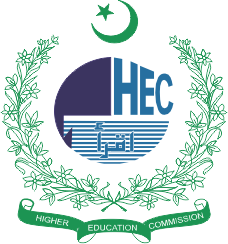Deep Fakes and Digital Ethics: Navigating the Ethical Dilemma in Portraying Political Characters through Deep Fakes and their Impact on Political Communication in Digital Media
DOI:
https://doi.org/10.55737/trt/SG25.096Keywords:
TikTok, Political Communication, Deep Fake, Artificial IntelligenceAbstract
The study aims to investigate the ethical and communication issues of deep-fake videos involving Imran Khan, Shahbaz Sharif, Maryam Nawaz Sharif, and Bilawal Bhutto Zardari on TikTok. Using qualitative techniques, forty deepfake videos were produced and evaluated to sort their main themes and review public interest. By using Postmodern Media Theory and Media Ethics Theory, the research investigates how deepfakes can change the reality of politics and raise issues with consent, truthfulness, and identity. Some main categories appeared in my analysis: satire and parody, fake political messages, altered election campaign strategies, encouraging leaders, and propaganda that spread negativity. Most of the time, fake statements focused on Khan, Sharif, and Maryam Nawaz, and they were usually hit with satire and stereotypes based on their gender. Bilawal Bhutto's views were better-balanced than those of the previous leader. People who saw the fake videos laughed, got confused, and didn't trust them, showing that deepfakes can have a bad effect on society and democracy. It points out that TikTok's personalized algorithm helps spread possibly untrue or misleading material. To protect democracies from problems caused by deep-fakes in politics, it urges people to be digitally literate, update regulations, make tech platforms more responsible, and prioritize ethical AI standards.
References
Akram, G., Naseer, M., & Raza, S. M. H. (2023). Immediacy and Journalistic Authority For Reporting Environmental Disasters: Case Study Of the 2022 Floods Of Pakistan. Media Science & Creative Arts, 3(1), 50–65. https://doi.org/https://doi.org/10.56596/jjmsca.v3i1.48
Akram, G., Raza, S. M. H., & Riaz, M. (2024). The Transformative Power of Communication: Shaping Identity, Society, and Thought in the Social Media Age. 3rd International Conference, Contemporary World: Challenges & Transformation (13 Nov, 2024) Rawalpindi Women University. https://doi.org/10.13140/RG.2.2.15608.05128
Ali, S. F., Syed, & Iftikhar, A. (2025). South Asian Print Media and Climate Discourse: A Framing Analysis of COP28 and COP29. Human Nature Journal of Social Sciences, 6(2), 167–178. https://doi.org/10.71016/hnjss/fkp5bk81
Battista, D. (2024). Political communication in the age of artificial intelligence: an overview of deepfakes and their implications. Society Register, 8(2), 7–24. https://www.ceeol.com/search/article-detail?id=1251211
Bora, A. (2020). Digital Media Dynamics: Ethical Challenges and Accountability in the Information Age. International Journal of Law Management & Humanities, 7(4). https://doi.org/10.10000/IJLMH.118210
Cervi, L., Tejedor, S., & Blesa, F. G. (2023). TikTok and Political Communication: The Latest Frontier of Politainment? A Case Study. Media and Communication, 11(2), 203–217. https://doi.org/10.17645/mac.v11i2.6390
Donath, J. (2020). Identity and deception in the virtual community. Communities in Cyberspace, August 1996, 37–68. https://doi.org/10.4324/9780203194959-11
Farouk, M. A., & Fahmi, B. M. (2024). Deepfakes and Media Integrity: Navigating the New Reality of Synthetic Content. Journal of Media and Interdisciplinary Studies, 3(9). https://doi.org/10.21608/jmis.2024.275298.1027
Fichman, P., & Akter, S. (2025). Political trolling on TikTok. Telematics and Informatics, 96, 102226. https://doi.org/10.1016/J.TELE.2024.102226
Floridi, L. (2013). The Ethics of Information. Oxford University Press.
Ged, C. A., & Affairs, U. P. A. S. (2024). The role of AI-driven content, smart technologies, and disinformation in the 2024 U.S. Presidential elections Cansu Arısoy GEDİK 1. UPA Strategic Affairs, 6(1), 1–29. https://dergipark.org.tr/en/pub/upa/issue/90497/1643814
Kashif, M., Zareen, S., & Raza, S. M. H. (2025). Exploring Media Academics’ Perspectives on the Role of Social Media in Promoting Climate Change Awareness in Pakistani Society. The Progress, 6(2), 167–178. https://doi.org/10.71016/tp/9as9sv02
Kunnathully, K., & Mission, V. (2025). Propaganda, Social Media and AI. In Digital Populism and the Use of Neo-Propaganda and Fake News (pp. 19–21). IGI Global. https://doi.org/10.4018/979-8-3693-9999-6.ch002
Li, S. (2025). The Social Harms of AI-Generated Fake News: Addressing Deepfake and AI Political Manipulation. Digital Society & Virtual Governance, 1(1), 72–88. https://doi.org/10.6914/dsvg.010105
Momeni, M. (2024). Artificial Intelligence and Political Deepfakes: Shaping Citizen Perceptions Through Misinformation. Journal of Creative Communications, 20(1). https://doi.org/10.1177/09732586241277335
Önder, B. A., & Koç, N. E. (2024). Disinformation With Artificial Intelligence in Algorithmic Societies: an Analysis of Political Leaders. Turkish Online Journal of Design Art and Communication, 14(3), 629–647. https://doi.org/10.7456/tojdac.1464241
Rahman, W. S., & Abdel. (2025). Analysis of the mechanisms of using artificial intelligence to manipulate social media content and mislead public opinion in the Middle East. المقالات الجاهزة للنشر، المقال المقبول استمارة إلكترونية. https://dx.doi.org/10.21608/mebp.2025.357866.1152
Raza, S. M. H., & Shah, B. H. (2024). Global News Coverage of Climate Change: A Comparative Analysis of South Asian Press. Human Nature Journal of Social Sciences, 5(3), 275–287. https://doi.org/10.71016/HNJSS/DE0TP681
Raza, S. M. H., Iftikhar, A., Kashif, M., & Zareen, S. (2025). Carbon Chronicles: A Framing Analysis of Climate Coverage in Leading Emitter Nations (China, USA, and India). Human Nature Journal of Social Sciences, 6(2), 1–20. https://doi.org/10.71016/hnjss/bws2dg69
Rudnieva, A. (2024). Innovative information technologies in election political communications. Social and Political Sciences, 7(2). https://doi.org/10.15421/342457
Sharma, A., Pujari, T., & Goel, A. (2024). The Fake Propaganda on Tiktok : Measuring Gen Z ’ s Vulnerability and Building. 6(5), 1–12. https://doi.org/10.36948/ijfmr.2024.v06i05.42635
Ünver, H. A. (2023). The role of technology : new methods of information august 2023 new methods of information manipulation and disinformation. Center of economic and foreign policy, august. Https://doi.org/10.13140/rg.2.2.33935.97449
Yessimova, M. S., & Shevyakova, T. V. (2024). deep fakes in the digital media age: opportunities and threats. Herald of Journalism/Habaršy Žurnalistika Seriâsy, 73(3). https://doi.org/10.26577/HJ.2024.v73.i3.4
Downloads
Published
Issue
Section
License
Copyright (c) 2025 Ghias Akram, Dr. Noman Ahmed Ansari, Qurat Ul Ain Farooq

This work is licensed under a Creative Commons Attribution-NonCommercial 4.0 International License.





